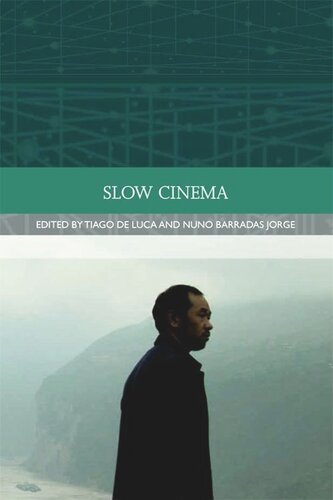

Most ebook files are in PDF format, so you can easily read them using various software such as Foxit Reader or directly on the Google Chrome browser.
Some ebook files are released by publishers in other formats such as .awz, .mobi, .epub, .fb2, etc. You may need to install specific software to read these formats on mobile/PC, such as Calibre.
Please read the tutorial at this link: https://ebookbell.com/faq
We offer FREE conversion to the popular formats you request; however, this may take some time. Therefore, right after payment, please email us, and we will try to provide the service as quickly as possible.
For some exceptional file formats or broken links (if any), please refrain from opening any disputes. Instead, email us first, and we will try to assist within a maximum of 6 hours.
EbookBell Team

0.0
0 reviewsIn the context of a frantic world that celebrates instantaneity and speed, a number of cinemas steeped in contemplation, silence and duration have garnered significant critical attention in recent years, thus resonating with a larger sociocultural movement whose aim is to rescue extended temporal structures from the accelerated tempo of late-capitalism. Although not part of a structured film movement, directors such as Carlos Reygadas, Tsai Ming-liang, Béla Tarr, Pedro Costa and Kelly Reichardt have been largely subsumed under the term ‘slow cinema’. But what exactly is slow cinema? Is it a strictly recent phenomenon or an overarching cinematic tradition? And how exactly do slow cinemas interrelate on an aesthetic, technical and political level?
Deploying the concept of slowness as an umbrella category under which filmmakers and traditions from different historical and geographical backgrounds can fruitfully converge, this innovative collection of essays interrogates and expands the frameworks that have generally informed slow cinema debates. Repositioning the term in a broader theoretical space, the book combines an array of fine-grained studies that will provide valuable insight into the notion of slowness in the cinema, while mapping out past and contemporary slow films across the globe.